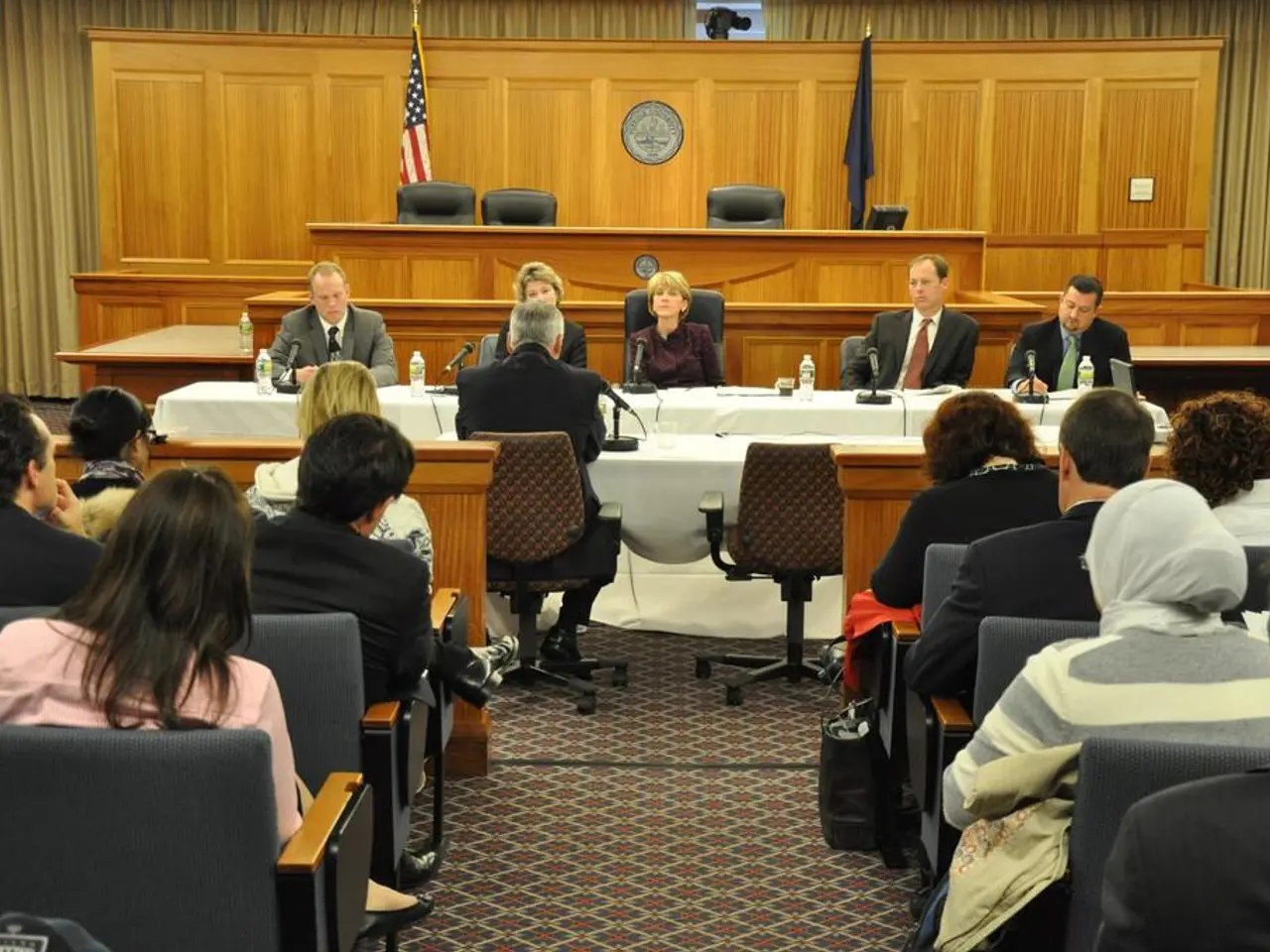Current status of the customs disagreement - and potential future actions - Customs standoff resolution path
The US-EU trade dispute has reached a critical juncture, with both parties imposing and threatening additional tariffs, causing escalating tensions.
Under the Trump administration, the US announced a significant increase in tariffs on EU imports. Starting from August 2025, a sweeping 30% tariff will be imposed on all EU imports, a move that particularly threatens the European wine and spirits industry, among others. This decision, if implemented, could disrupt exports and drive up prices in the US market.
Earlier, the US had already hiked steel and aluminum duties to 50% on EU imports, contributing to the ongoing trade frictions.
In response, the EU has strategically delayed imposing retaliatory tariffs against the US to maintain open negotiation channels. The EU had planned countermeasures on approximately $24.5 billion of US goods, especially targeting metal tariffs, but has postponed these measures until early August 2025.
This suspension aims to avoid further disruption to supply chains and economic costs on both sides while negotiations on complex issues such as aircraft subsidies, automotive trade, and digital taxation continue. However, there is internal division within the EU. Some lawmakers criticize the delay in retaliatory tariffs as showing weakness and potentially undermining the EU’s credibility, urging the Commission to implement countermeasures promptly to demonstrate seriousness in negotiations.
Negotiations have been extended until July 2025, reflecting the EU’s intent to resolve issues through dialogue rather than escalating trade wars. The EU is also focusing on trade diversification and partnerships beyond the US to mitigate risks from these disputes.
The US President's administration is not just about fulfilling a campaign promise with tariffs, but also about the revenue they generate. Trump is also pursuing financial political interests, aiming to increase US budget financing through tariff revenues.
In a recent statement, a representative of the German government suggested that Trump needs money to fund his initiatives. Economists expect that Trump's latest statement may not be the final word, referencing his history of backing down.
The current status of the US-EU trade dispute is marked by escalating tensions with the US imposing new tariffs, while the EU has temporarily suspended retaliatory tariffs to extend negotiations. The dispute remains highly complex and critical, with ongoing negotiations and significant economic stakes on both sides.
- The community policy of the EU, particularly focusing on trade and employment, is under significant strain due to the US-EU trade dispute, as both parties implement and threaten additional tariffs, causing escalating tensions.
- Amidst the US-EU trade dispute, the employment policy within the European wine and spirits industry, among others, faces a potentially disruptive future with the impending 30% tariff hike on EU imports in August 2025, a decision that stems from politics and policy-and-legislation, and could also be influenced by war-and-conflicts or general news events.






